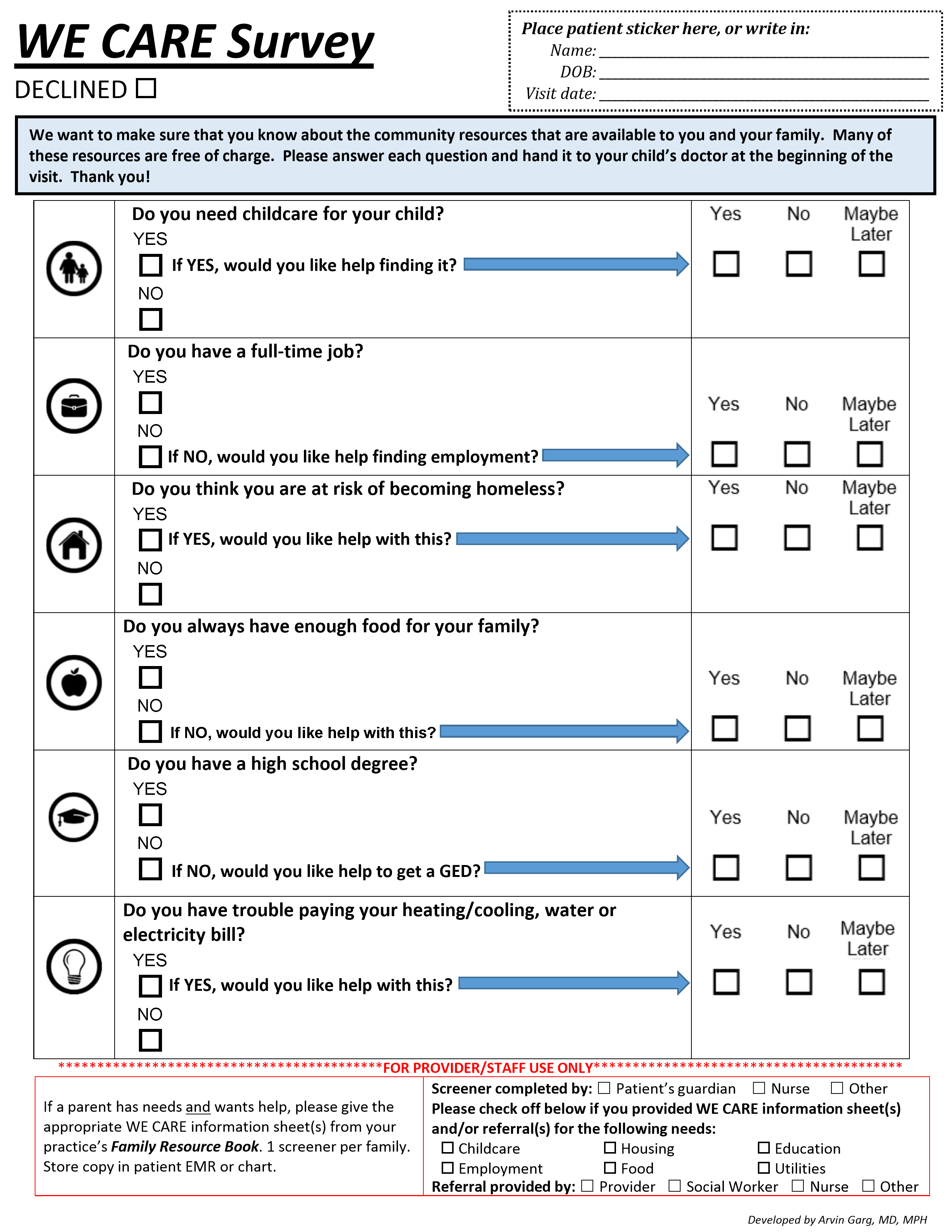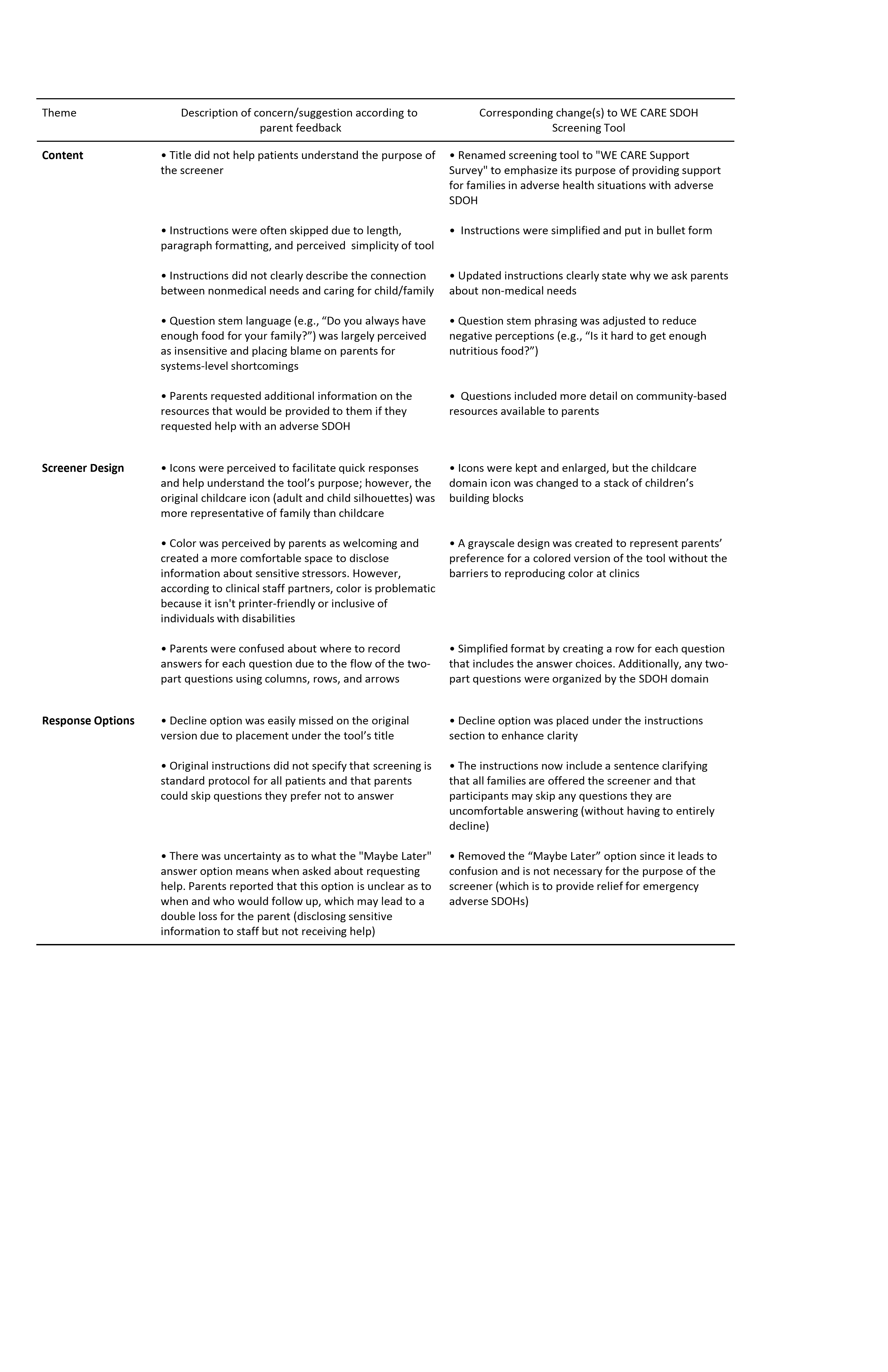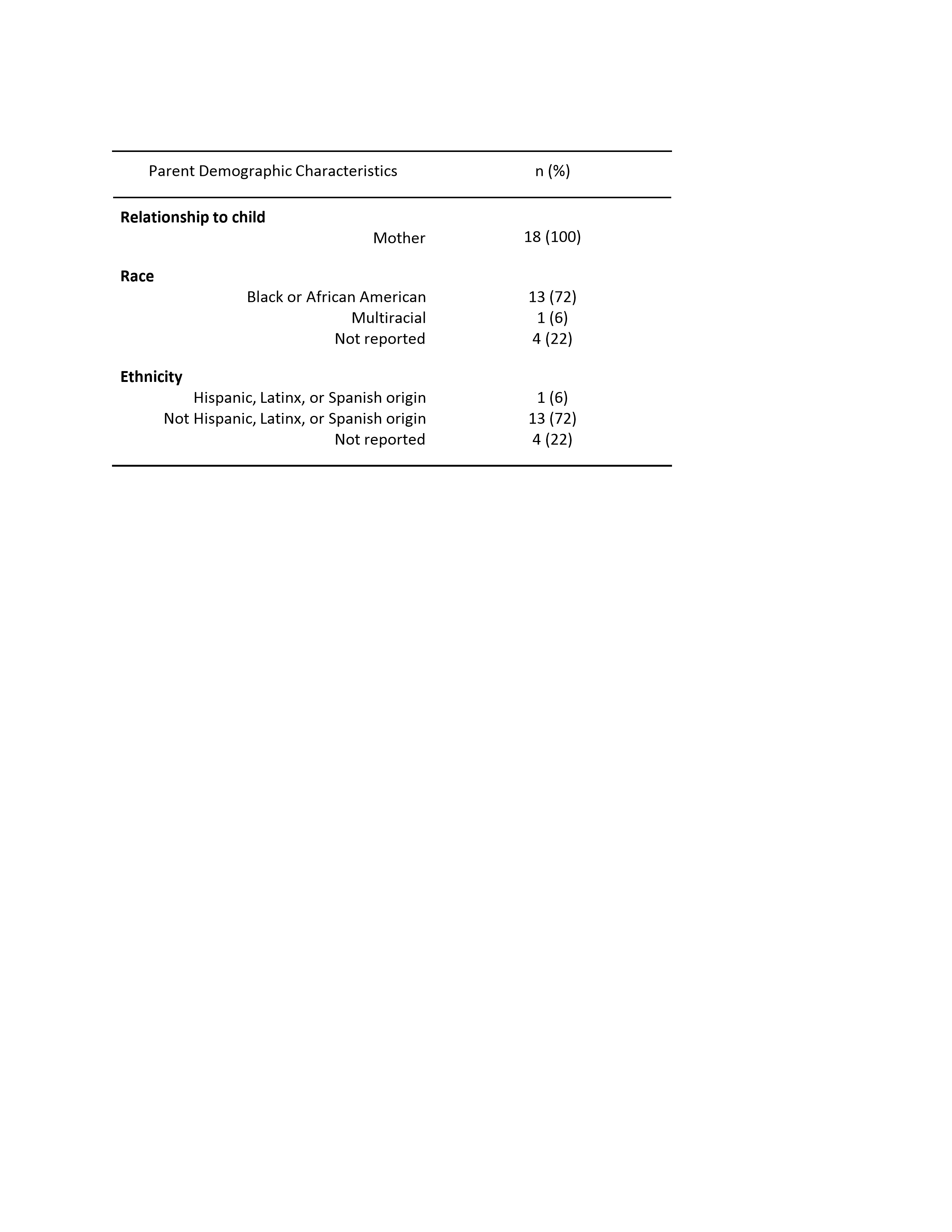Health Equity/Social Determinants of Health
Health Equity/Social Determinants of Health 3
548 - Incorporating Parents’ Perspectives to Revise a Social Determinants of Health Screening Tool
Publication Number: 548.118

Angela R. Magardino, MPH (she/her/hers)
Research Assistant
Boston Medical Center
Boston, Massachusetts, United States- PK
Presenting Author(s)
Co-Author(s)
Background:
Social determinants of health (SDOH) screening and referral interventions are increasingly being integrated into clinical practice, yet most existing screening tools have not been designed using patient and caregiver perspectives. Parent-centered and -informed tools may improve the ability to identify families’ adverse SDOH and desire for assistance, and boost overall child health outcomes by facilitating greater access to relevant social services.
Objective: To evaluate and revise an evidence-based pediatric SDOH screening tool by soliciting and incorporating parent feedback.
Design/Methods: This qualitative study was derived from a larger pilot RCT of an existing screening and referral model (WE CARE) in four pediatric hematology clinics in New England. Using cognitive interviewing, we assessed parents' perceptions of the WE CARE screening tool to increase patient satisfaction with and usability of the tool. To improve our understanding of the processes used by parents to answer screener questions, we assessed parents' comprehension of (e.g., what do you think “childcare” refers to?), judgment regarding (e.g., how do you think your clinician would interpret your response?), and responses to (e.g., how did you arrive at that answer?) the tool. Interim feedback was incorporated into the screener throughout data collection so that participants were responding to iterative versions of the tool. Transcribed interviews were inductively coded using the rigorous and accelerated data reduction (RADaR) technique.
Results: We conducted 18 cognitive interviews (response rate of 38%) from 2021 to 2022 with parents aged 18 years or older of children up to 12 years old with sickle cell disease. We identified themes related to screener content, design, and response options (Table 1). Content: Parents uniformly suggested rephrasing questions to reduce feelings of blame or stigma associated with needing and seeking help. Screener Design: Parents recommended adding color, icons, and arranging questions in rows. Response Options: When answering the “would you like help with this?” question (Figure 1), parents were uncertain how and when they would receive assistance if they selected “Maybe Later."
Conclusion(s): The parent-informed approach employs caregiver feedback as a basis for adapting the WE CARE SDOH screener. As pediatric practices and health systems continue to implement SDOH screening, having parents co-design and/or adapt SDOH tools is critical to improve the implementation and effectiveness of screening, and its potential to advance health equity. 


